- Home
- Anthony Trollope
The Palliser Novels Page 2
The Palliser Novels Read online
Page 2
And now for my fact. At the time of which I am writing she was already engaged to be married.
CHAPTER II
Lady Macleod
I cannot say that the house in Queen Anne Street was a pleasant house. I am now speaking of the material house, made up of the walls and furniture, and not of any pleasantness or unpleasantness supplied by the inmates. It was a small house on the south side of the street, squeezed in between two large mansions which seemed to crush it, and by which its fair proportion of doorstep and area was in truth curtailed. The stairs were narrow; the dining-room was dark, and possessed none of those appearances of plenteous hospitality which a dining-room should have. But all this would have been as nothing if the drawing-room had been pretty as it is the bounden duty of all drawing-rooms to be. But Alice Vavasor’s drawing-room was not pretty. Her father had had the care of furnishing the house, and he had intrusted the duty to a tradesman who had chosen green paper, a green carpet, green curtains, and green damask chairs. There was a green damask sofa, and two green arm-chairs opposite to each other at the two sides of the fireplace. The room was altogether green, and was not enticing. In shape it was nearly square, the very small back room on the same floor not having been, as is usual, added to it. This had been fitted up as a “study” for Mr Vavasor, and was very rarely used for any purpose.
Most of us know when we enter a drawing-room whether it is a pretty room or no; but how few of us know how to make a drawing-room pretty! There has come up in London in these latter days a form of room so monstrously ugly that I will venture to say that no other people on earth but Londoners would put up with it. Londoners, as a rule, take their houses as they can get them, looking only to situation, size, and price. What Grecian, what Roman, what Turk, what Italian would endure, or would ever have endured, to use a room with a monstrous cantle in the form of a parallelogram cut sheerly out of one corner of it? This is the shape of room we have now adopted, — or rather which the builders have adopted for us, — in order to throw the whole first floor into one apartment which may be presumed to have noble dimensions, — with such drawback from it as the necessities of the staircase may require. A sharp unadorned corner projects itself into these would-be noble dimensions, and as ugly a form of chamber is produced as any upon which the eye can look. I would say more on the subject if I dared to do so here, but I am bound now to confine myself to Miss Vavasor’s room. The monstrous deformity of which I have spoken was not known when that house in Queen Anne Street was built. There is to be found no such abomination of shape in the buildings of our ancestors, — not even in the days of George the Second. But yet the drawing-room of which I speak was ugly, and Alice knew that it was so. She knew that it was ugly, and she would greatly have liked to banish the green sofa, to have re-papered the wall, and to have hung up curtains with a dash of pink through them. With the green carpet she would have been contented. But her father was an extravagant man; and from the day on which she had come of age she had determined that it was her special duty to avoid extravagance.
“It’s the ugliest room I ever saw in my life,” her father once said to her.
“It is not very pretty,” Alice replied.
“I’ll go halves with you in the expense of redoing it,” said Mr Vavasor.
“Wouldn’t that be extravagant, papa? The things have not been here quite four years yet.”
Then Mr Vavasor had shrugged his shoulders and said nothing more about it. It was little to him whether the drawing-room in Queen Anne Street was ugly or pretty. He was on the committee of his club, and he took care that the furniture there should be in all respects comfortable.
It was now June; and that month Lady Macleod was in the habit of spending among her noble relatives in London when she had succeeded in making both ends so far overlap each other at Cheltenham as to give her the fifty pounds necessary for this purpose. For though she spent her month in London among her noble friends, it must not be supposed that her noble friends gave her bed or board. They sometimes gave her tea, such as it was, and once or twice in the month they gave the old lady a second-rate dinner. On these occasions she hired a little parlour and bedroom behind it in King Street, Saint James’s, and lived a hot, uncomfortable life, going about at nights to gatherings of fashionable people of which she in her heart disapproved, seeking for smiles which seldom came to her, and which she excused herself for desiring because they were the smiles of her kith and her kin, telling herself always that she made this vain journey to the modern Babylon for the good of Alice Vavasor, and telling herself as often that she now made it for the last time. On the occasion of her preceding visit she had reminded herself that she was then seventy-five years old, and had sworn to herself that she would come to London no more; but here she was again in London, having justified the journey to herself on the plea that there were circumstances in Alice’s engagement which made it desirable that she should for a while be near her niece. Her niece, as she thought, was hardly managing her own affairs discreetly.
“Well, aunt,” said Alice, as the old lady walked into the drawing-room one morning at eleven o’clock. Alice always called Lady Macleod her aunt, though, as has been before explained, there was no such close connexion between them. During Lady Macleod’s sojourn in London these morning visits were made almost every day. Alice never denied herself, and even made a point of remaining at home to receive them unless she had previously explained that she would be out; but I am not prepared to say that they were, of their own nature, agreeable to her.
“Would you mind shutting the window, my dear?” said Lady Macleod, seating herself stiffly on one of the small ugly green chairs. She had been educated at a time when easy-chairs were considered vicious, and among people who regarded all easy postures as being so; and she could still boast, at seventy-six, that she never leaned back. “Would you mind shutting the window? I’m so warm that I’m afraid of the draught.”
“You don’t mean to say that you’ve walked from King Street,” said Alice, doing as she was desired.
“Indeed I do, — every step of the way. Cabs are so ruinous. It’s a most unfortunate thing; they always say it’s just over the two miles here. I don’t believe a word of it, because I’m only a little more than the half-hour walking it; and those men will say anything. But how can I prove it, you know?”
“I really think it’s too far for you to walk when it’s so warm.”
“But what can I do, my dear? I must come, when I’ve specially come up to London to see you. I shall have a cab back again, because it’ll be hotter then, and dear Lady Midlothian has promised to send her carriage at three to take me to the concert. I do so wish you’d go, Alice.”
“It’s out of the question, aunt. The idea of my going in that way at the last moment, without any invitation!”
“It wouldn’t be without an invitation, Alice. The marchioness has said to me over and over again how glad she would be to see you, if I would bring you.”
“Why doesn’t she come and call if she is so anxious to know me?”
“My dear, you’ve no right to expect it; you haven’t indeed. She never calls even on me.”
“I know I’ve no right, and I don’t expect it, and I don’t want it. But neither has she a right to suppose that, under such circumstances, I shall go to her house. You might as well give it up, aunt. Cart ropes wouldn’t drag me there.”
“I think you are very wrong, — particularly under your present circumstances. A young woman that is going to be married, as you are — “
“As I am, — perhaps.”
“That’s nonsense, Alice. Of course you are; and for his sake you are bound to cultivate any advantages that naturally belong to you. As to Lady Midlothian or the marchioness coming to call on you here in your father’s house, after all that has passed, you really have no right to look for it.”
“And I don’t look for it.”
“That sort of people are not expected to call. If you’ll think of it, how could t
hey do it with all the demands they have on their time?”
“My dear aunt, I wouldn’t interfere with their time for worlds.”
“Nobody can say of me, I’m sure, that I run after great people or rich people. It does happen that some of the nearest relations I have, — indeed I may say the nearest relations, — are people of high rank; and I do not see that I’m bound to turn away from my own flesh and blood because of that, particularly when they are always so anxious to keep up the connexion.”
“I was only speaking of myself, aunt. It is very different with you. You have known them all your life.”
“And how are you to know them if you won’t begin? Lady Midlothian said to me only yesterday that she was glad to hear that you were going to be married so respectably, and then — “
“Upon my word I’m very much obliged to her ladyship. I wonder whether she considered that she married respectably when she took Lord Midlothian?”
Now Lady Midlothian had been unfortunate in her marriage, having united herself to a man of bad character, who had used her ill, and from whom she had now been for some years separated. Alice might have spared her allusion to this misfortune when speaking of the countess to the cousin who was so fond of her, but she was angered by the application of that odious word respectable to her own prospects; and perhaps the more angered as she was somewhat inclined to feel that the epithet did suit her own position. Her engagement, she had sometimes told herself, was very respectable, and had as often told herself that it lacked other attractions which it should have possessed. She was not quite pleased with herself in having accepted John Grey, — or rather perhaps was not satisfied with herself in having loved him. In her many thoughts on the subject, she always admitted to herself that she had accepted him simply because she loved him; — that she had given her quick assent to his quick proposal simply because he had won her heart. But she was sometimes almost angry with herself that she had permitted her heart to be thus easily taken from her, and had rebuked herself for her girlish facility. But the marriage would be at any rate respectable. Mr Grey was a man of high character, of good though moderate means; he was, too, well educated, of good birth, a gentleman, and a man of talent. No one could deny that the marriage would be highly respectable, and her father had been more than satisfied. Why Miss Vavasor herself was not quite satisfied will, I hope, in time make itself appear. In the meanwhile it can be understood that Lady Midlothian’s praise would gall her.
“Alice, don’t be uncharitable,” said Lady Macleod severely. “Whatever may have been Lady Midlothian’s misfortunes no one can say they have resulted from her own fault.”
“Yes they can, aunt, if she married a man whom she knew to be a scapegrace because he was very rich and an earl.”
“She was the daughter of a nobleman herself, and only married in her own degree. But I don’t want to discuss that. She meant to be good-natured when she mentioned your marriage, and you should take it as it was meant. After all she was only your mother’s second cousin — “
“Dear aunt, I make no claim on her cousinship.”
“But she admits the claim, and is quite anxious that you should know her. She has been at the trouble to find out everything about Mr Grey, and told me that nothing could be more satisfactory.”
“Upon my word I am very much obliged to her.”
Lady Macleod was a woman of much patience, and possessed also of considerable perseverance. For another half-hour she went on expatiating on the advantages which would accrue to Alice as a married woman from an acquaintance with her noble relatives, and endeavouring to persuade her that no better opportunity than the present would present itself. There would be a place in Lady Midlothian’s carriage, as none other of the daughters were going but Lady Jane. Lady Midlothian would take it quite as a compliment, and a concert was not like a ball or any customary party. An unmarried girl might very properly go to a concert under such circumstances as now existed without any special invitation. Lady Macleod ought to have known her adopted niece better. Alice was immoveable. As a matter of course she was immoveable. Lady Macleod had seldom been able to persuade her to anything, and ought to have been well sure that, of all things, she could not have persuaded her to this.
Then, at last, they came to another subject, as to which Lady Macleod declared that she had specially come on this special morning, forgetting, probably, that she had already made the same assertion with reference to the concert. But in truth the last assertion was the correct one, and on that other subject she had been hurried on to say more than she meant by the eagerness of the moment. All the morning she had been full of the matter on which she was now about to speak. She had discussed it quite at length with Lady Midlothian; — though she was by no means prepared to tell Alice Vavasor that any such discussion had taken place. From the concert, and the effect which Lady Midlothian’s countenance might have upon Mr Grey’s future welfare, she got herself by degrees round to a projected Swiss tour which Alice was about to make. Of this Swiss tour she had heard before, but had not heard who were to be Miss Vavasor’s companions until Lady Midlothian had told her. How it had come to pass that Lady Midlothian had interested herself so much in the concerns of a person whom she did not know, and on whom she in her greatness could not be expected to call, I cannot say; but from some quarter she had learned who were the proposed companions of Alice Vavasor’s tour, and she had told Lady Macleod that she did not at all approve of the arrangement.
“And when do you go, Alice?” said Lady Macleod.
“Early in July, I believe. It will be very hot, but Kate must be back by the middle of August.” Kate Vavasor was Alice’s first cousin.
“Oh! Kate is to go with you?”
“Of course she is. I could not go alone, or with no one but George. Indeed it was Kate who made up the party.”
“Of course you could not go alone with George,” said Lady Macleod, very grimly. Now George Vavasor was Kate’s brother, and was therefore also first cousin to Alice. He was heir to the old squire down in Westmoreland, with whom Kate lived, their father being dead. Nothing, it would seem, could be more rational than that Alice should go to Switzerland with her cousins; but Lady Macleod was clearly not of this opinion; she looked very grim as she made this allusion to cousin George, and seemed to be preparing herself for a fight.
“That is exactly what I say,” answered Alice. “But, indeed, he is simply going as an escort to me and Kate, as we don’t like the rôle of unprotected females. It is very good-natured of him, seeing how much his time is taken up.”
“I thought he never did anything.”
“That’s because you don’t know him, aunt.”
“No; certainly I don’t know him.” She did not add that she had no wish to know Mr George Vavasor, but she looked it. “And has your father been told that he is going?”
“Of course he has.”
“And does — ” Lady Macleod hesitated a little before she went on, and then finished her question with a little spasmodic assumption of courage. “And does Mr Grey know that he is going?”
Alice remained silent for a full minute before she answered this question, during which Lady Macleod sat watching her grimly, with her eyes very intent upon her niece’s face. If she supposed such silence to have been in any degree produced by shame in answering the question, she was much mistaken. But it may be doubted whether she understood the character of the girl whom she thought she knew so well, and it is probable that she did make such mistake.
“I might tell you simply that he does,” said Alice at last, “seeing that I wrote to him yesterday, letting him know that such were our arrangements; but I feel that I should not thus answer the question you mean to ask. You want to know whether Mr Grey will approve of it. As I only wrote yesterday of course I have not heard, and therefore cannot say. But I can say this, aunt, that much as I might regret his disapproval, it would make no change in my plans.”
“Would it not? Then I must tell you, you are ve
ry wrong. It ought to make a change. What! the disapproval of the man you are going to marry make no change in your plans?”
“Not in that matter. Come, aunt, if we must discuss this matter let us do it at any rate fairly. In an ordinary way, if Mr Grey had asked me to give up for any reason my trip altogether, I should have given it up certainly, as I would give up any other indifferent project at the request of so dear a friend, — a friend with whom I am so — so — so closely connected. But if he asked me not to travel with my cousin George, I should refuse him absolutely, without a word of parley on the subject, simply because of the nature and closeness of my connection with him. I suppose you understand what I mean, aunt?”
“I suppose I do. You mean that you would refuse to obey him on the very subject on which he has a right to claim your obedience.”
“He has no right to claim my obedience on any subject,” said Alice; and as she spoke Aunt Macleod jumped up with a little start at the vehemence of the words, and of the tone in which they were expressed. She had heard that tone before, and might have been used to it; but, nevertheless, the little jump was involuntary. “At present he has no right to my obedience on any subject, but least of all on that,” said Alice. “His advice he may give me, but I am quite sure he will not ask for obedience.”

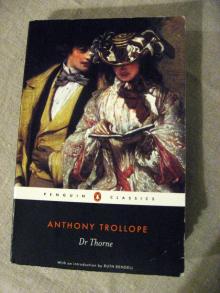 Doctor Thorne
Doctor Thorne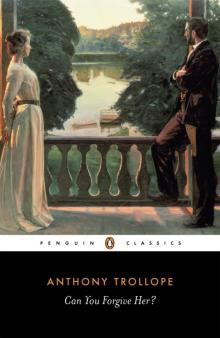 Can You Forgive Her?
Can You Forgive Her?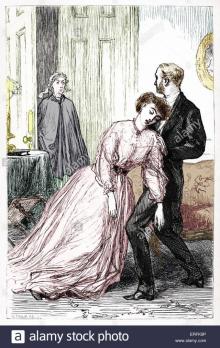 The Last Chronicle of Barset
The Last Chronicle of Barset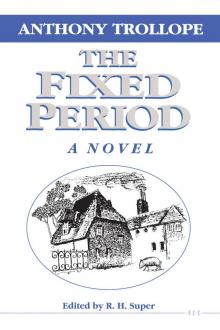 The Fixed Period
The Fixed Period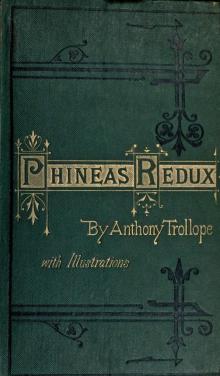 Phineas Redux
Phineas Redux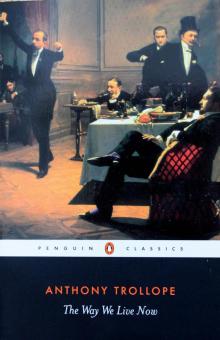 The Way We Live Now
The Way We Live Now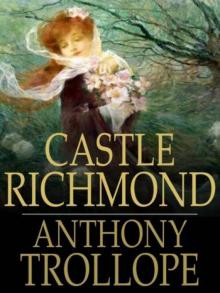 Castle Richmond
Castle Richmond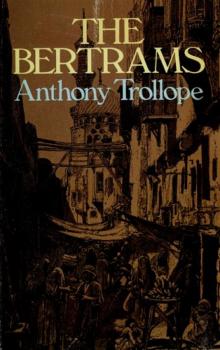 The Bertrams
The Bertrams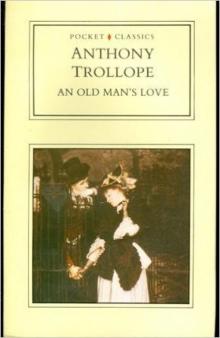 An Old Man's Love
An Old Man's Love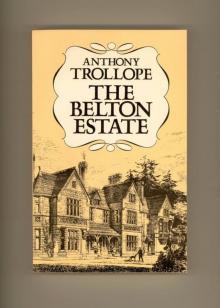 The Belton Estate
The Belton Estate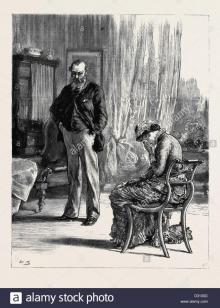 Marion Fay: A Novel
Marion Fay: A Novel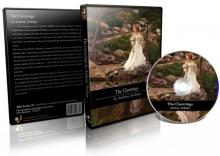 The Claverings
The Claverings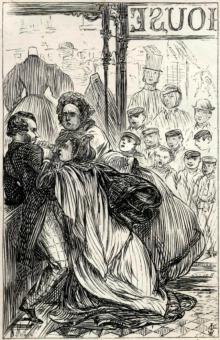 The Struggles of Brown, Jones, and Robinson
The Struggles of Brown, Jones, and Robinson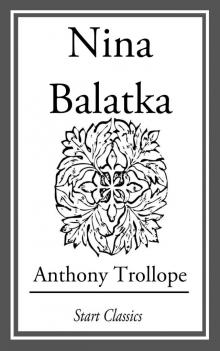 Nina Balatka
Nina Balatka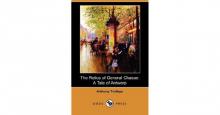 The Relics of General Chasse: A Tale of Antwerp
The Relics of General Chasse: A Tale of Antwerp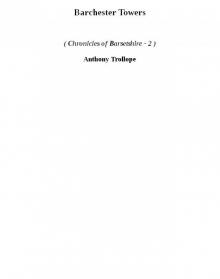 Barchester Towers cob-2
Barchester Towers cob-2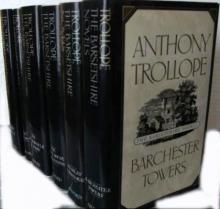 The Chronicles of Barsetshire
The Chronicles of Barsetshire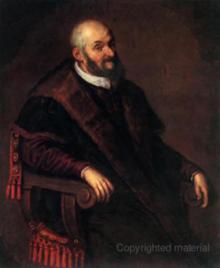 The Warden cob-1
The Warden cob-1 Framley Parsonage
Framley Parsonage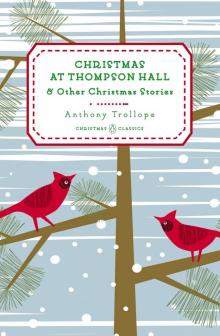 Christmas at Thompson Hall
Christmas at Thompson Hall The Warden
The Warden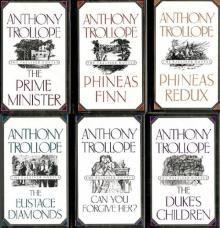 The Palliser Novels
The Palliser Novels The Small House at Allington
The Small House at Allington Barchester Towers
Barchester Towers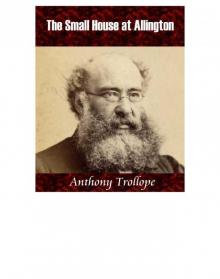 The Small House at Allington cob-5
The Small House at Allington cob-5 The Duke's Children
The Duke's Children Phineas Finn, the Irish Member
Phineas Finn, the Irish Member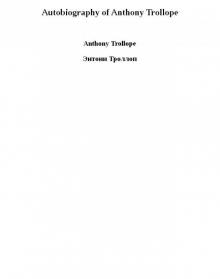 Autobiography of Anthony Trollope
Autobiography of Anthony Trollope